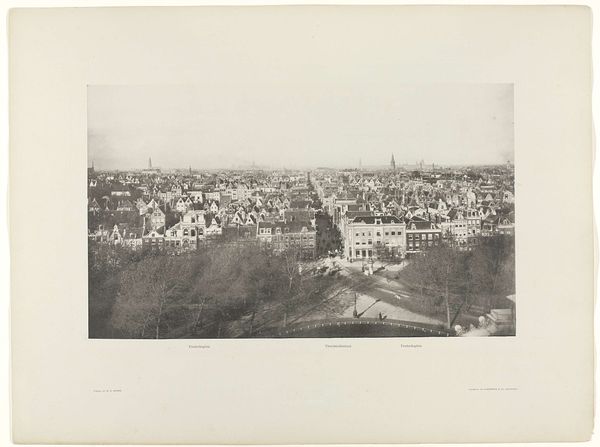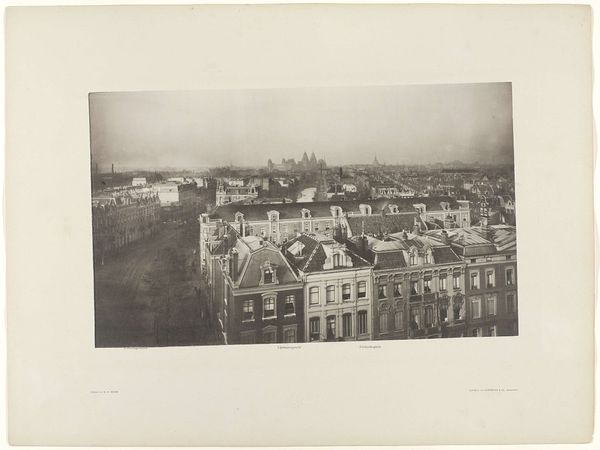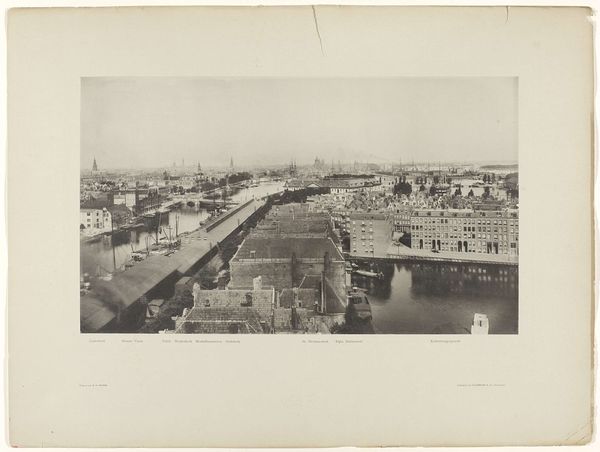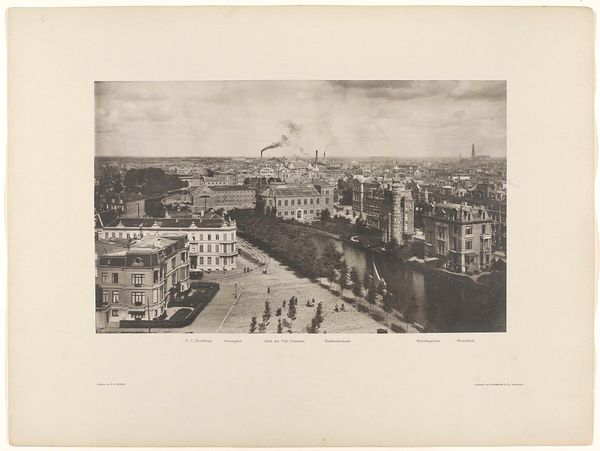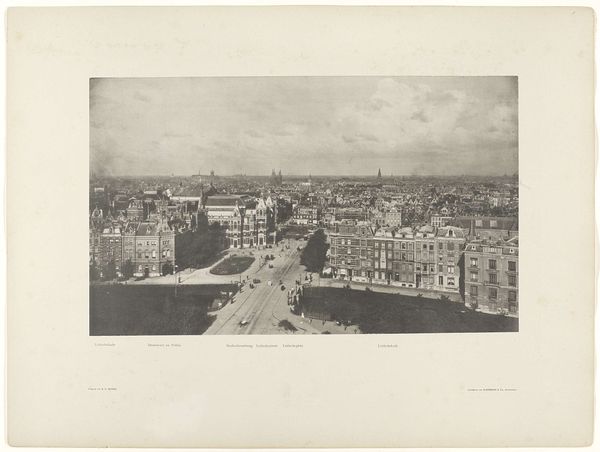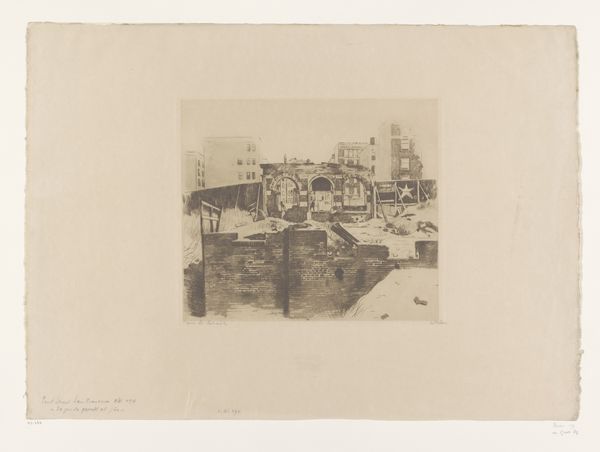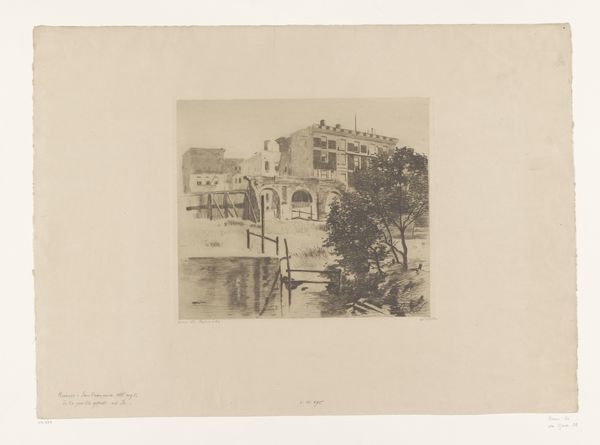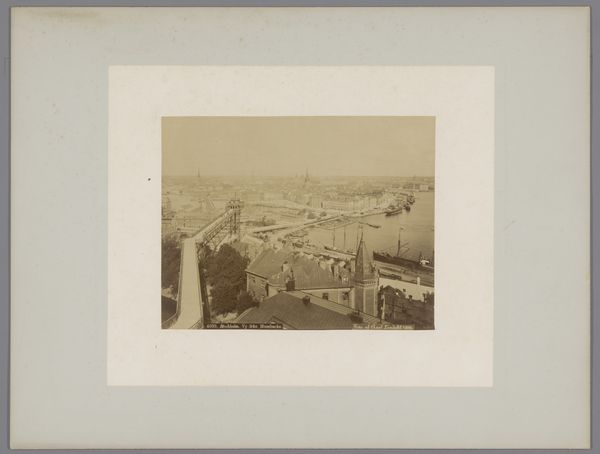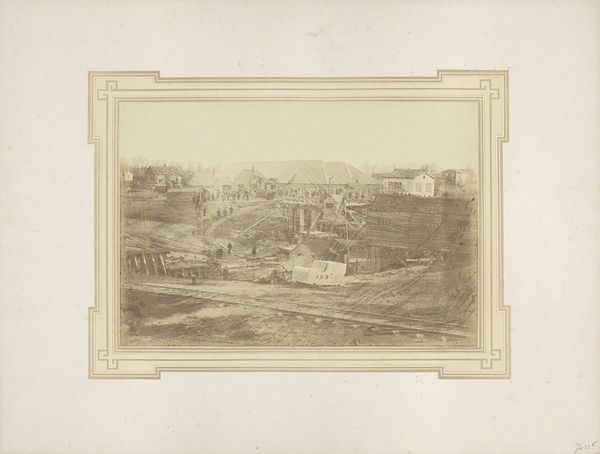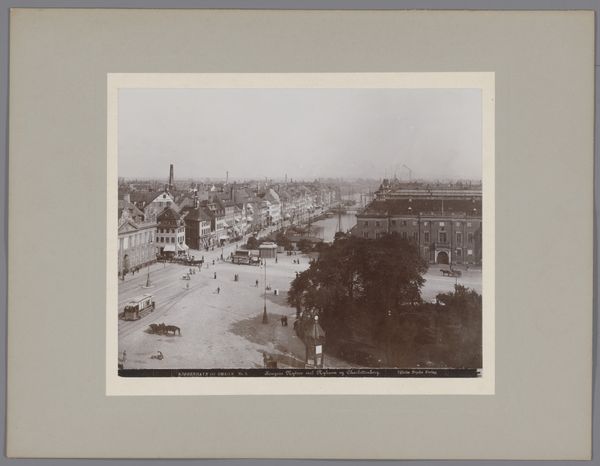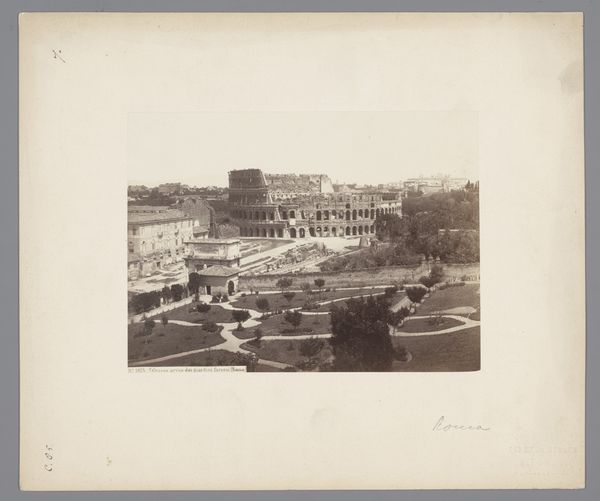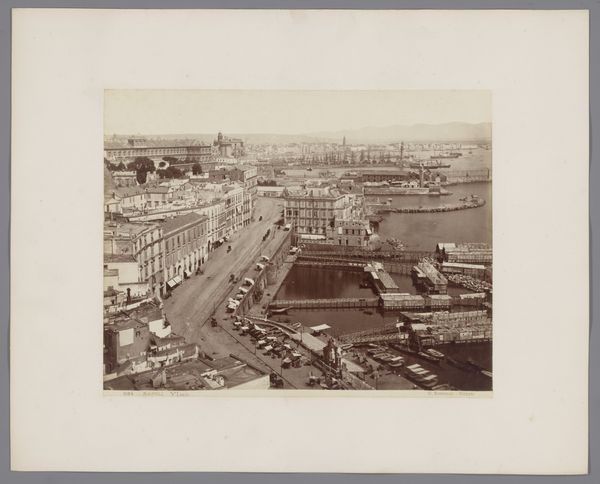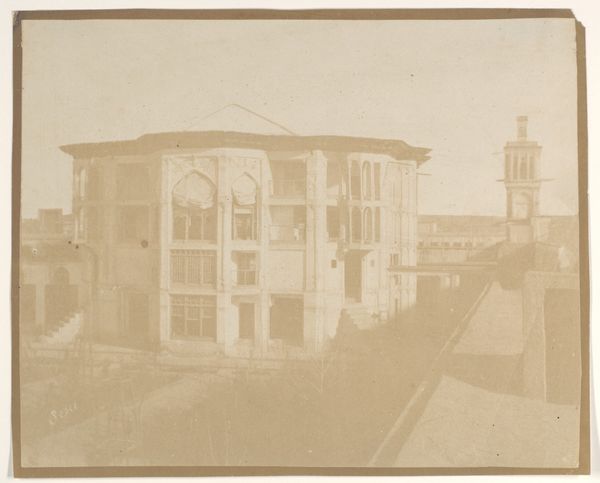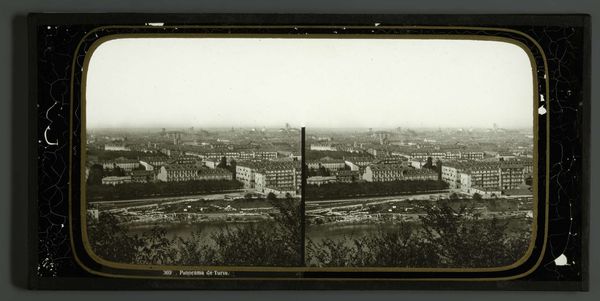
Sarphatistraat and Hoge Sluis, seen from the Paleis voor Volksvlijt; Frederiksplein and Weteringschans, seen from the Paleis voor Volksvlijt; Binnen-Amstel, seen in the direction of the Munt c. 1894
0:00
0:00
photography, gelatin-silver-print
#
photography
#
gelatin-silver-print
#
cityscape
#
street
#
realism
Dimensions: height 280 mm, width 469 mm, height 484 mm, width 640 mm
Copyright: Rijks Museum: Open Domain
Gerrit Hendricus Heinen captured this photogravure of Amsterdam streets sometime in the late 19th or early 20th century. Photogravure is an intaglio printmaking process, meaning the image is etched into a metal plate, which is then inked and pressed onto paper. The result is a print with rich tonal variations and fine detail, almost like a photograph. What makes this image interesting is the combination of technology and labor. The photographic process itself was still relatively new, requiring specialized knowledge and equipment. Meanwhile, the photogravure process demanded skilled craftsmanship to etch the plate and create the final print. Heinen's choice of photogravure elevates photography to the realm of fine art, blurring the lines between mechanical reproduction and handmade artistry. In doing so, he shows us how technology and craftsmanship can combine to create lasting beauty.
Comments
rijksmuseum over 2 years ago
⋮
At the dawn of the 20th century, Amsterdam’s rapidly changing face served as the setting for photographer and decorative painter Heinen. With camera at hand, he climbed tall buildings, such as the Paleis voor Volksvlijt (Palace for Art and Industry), which burned down in 1929, and the Rijksmuseum, to take his panoramas.
Join the conversation
Join millions of artists and users on Artera today and experience the ultimate creative platform.
